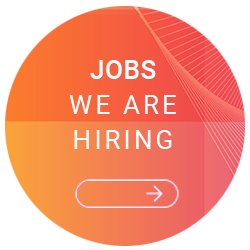einfachELSTERplus: mgm supports the next step in digital tax administration
Starting July 8, 2025, einfachELSTERplus will make filling out tax returns easier than ever – with an interactive interview mode. As a long-standing digitalization partner of the German tax authorities, mgm technology partners played a key role in implementing this new service.
Strengthening digital sovereignty: mgm wins contract in the federal government’s low-code framework agreement
As part of an EU-wide tender to conclude framework agreements for low-code implementation resources, mgm technology partners GmbH has been awarded a contract for nationwide digitization projects with its A12 development platform. mgm consulting and implementation services related to the A12 platform are now available to federal, state, and local government agencies.
Podcast: More digitalisation on a tight budget – how Mecklenburg-Western Pomerania is making it...
Digitalisation despite tight budgets – is that even possible? In Mecklenburg-Western Pomerania, the answer is yes – if you take cooperation seriously, manage processes clearly and tackle digital projects together. In an interview with Marcus Warnke from mgm consulting partners, Hauke Rickertsen, OZG coordinator at the Ministry of the Interior of Mecklenburg-Western Pomerania, and Raik Writschan, head of digitalisation for the city of Rostock, talk about what they have learned from the OZG implementation programme.
White paper Cloud computing in public administration: current status, prospects and digital sovereignty
In times of geopolitical tension, digital sovereignty is no longer an abstract concept, but a strategic necessity – especially for public administrations. More and more authorities are recognising that smart use of cloud computing not only increases efficiency, but also control over data and digital processes. But what is the status quo? What cloud projects already exist – and what needs to happen for Germany to become more digitally sovereign? Our white paper provides the answers.
Digital sovereignty and portfolio management – mgm topics at the Future Congress in Berlin
When administration, politics and digitalisation come together, a space for innovation is created - and this is exactly what the Zukunftskongress Staat & Gesellschaft offers. The congress in the capital is one of the most important platforms for public administration in Germany. From 23-25 June, decision-makers from the federal, state and local governments will once again meet with experts from business, science and civil society at Berlin's Westhafen. The focus: concrete solutions for the digital state of tomorrow.
eGovernment Readers’ Choice Awards 2025: nominated for outstanding consulting services
We are delighted to have been nominated once again for the eGovernment Readers' Choice Award in the Consultant category. Having won the Platinum Award four times in a row, we are naturally keen to defend our title this year. Help us do so by voting for mgm in the Consultant category.
DIN SPEC 66336: New quality standards for digital administrative services
Does the quality of online services meet the requirements of citizens? DIN SPEC 66336, published in March 2025, provides a new reference. The specification places an even greater focus on the quality of online services. For the first time, the specification defines binding requirements for the design, implementation and evaluation of digital administrative services. As a provider of long-lasting enterprise software solutions, mgm welcomes the introduction of binding and comprehensive standards, the core content of which mgm has already been fulfilling for years.
AI agents: Basics and practical use cases
Artificial intelligence (AI) is developing rapidly, influencing numerous areas of life and fundamentally changing work processes. AI agents are among the most promising innovations - autonomous software programs that independently process data, make decisions and perform actions by interacting with their environment. They take on repetitive tasks and ensure structured processing of information - without any human intervention.
AI in public authorities: Potential, practical examples and challenges
Artificial intelligence (AI) is becoming increasingly important in the public sector. Authorities are facing the challenge of coping with increasing demands for efficiency and service quality. AI can help to optimize processes, automate administrative tasks and process citizens' inquiries more quickly.
Review: Low code theme evening of the Berlin Senate Chancellery in cooperation with mgm
On January 29, our Berlin office hosted a low-code evening for employees of the Berlin administration. In cooperation with the Berlin Senate Chancellery, we were able to organize a successful evening with practical insights into low-code development and its potential for public administration. A special focus was on the topic of AI modeling and the possibilities that artificial intelligence (AI) opens up for low-code modeling.
















